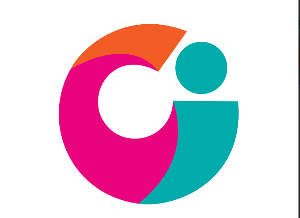 OISL & SASL celebrate anniversary
OISL & SASL celebrate anniversary
To go fast, go alone. To go far, go together. It is a phrase often cited, but only understood by the committed few who strive to achieve greatness. This year, Opportunity International celebrates two significant milestones in Ghana:
20 years of service for Opportunity International Savings and Loan Ltd (OISL) and 30 years for the Sinapi Aba Trust. Together, these institutions have served over 1.5 million micro, small, and medium enterprises.
From the outset, we recognized Ghana as a nation brimming with potential. With approximately 13 percent of the population living on less than $1.90 a day, we believe that tapping into this potential has been the necessary spark that could transform the country.
Opportunity International began its journey in Ghana in 1994. Bishop Davis Freeman and his wife Rev. Elizabeth Freeman were inspired by meetings with Opportunity founder David Bussau, that part of their mission and church planting work in their country needed to involve job creation.
Thus was born Sinapi Aba Trust, named after the mustard seed that held the hope of becoming something great (from Matthew 13:31-32). Guided by the leadership, vision, and determination of many Ghanaian leaders like the Freemans and Rev.
Dr. Kwabena Darko, a successful and widely-regarded Ghanaian poultry entrepreneur, aimed to create an entity that harnessed the entrepreneurial spirit of the country.
Since its first days in Kumasi, Sinapi Aba has been pivotal in ensuring that economically disadvantaged individuals are given the opportunities they need to earn a dignified living. Over the past 30 years, their work has brought hope to those often excluded from formal financial markets.
The success of Sinapi Aba Trust inspired us to establish Sinapi Aba Savings and Loans Ltd. (SASL) and OISL some ten years later. Focused on serving rural areas least likely to have access to financial services, both SASL and OISL provide sound financial education and support to clients, promoting a culture of savings through innovative deposit products.
Today, our collaboration employs over 2,500 people across 84 branches, united by a mission to serve the marginalized, the underbanked, and the unbanked—those excluded from mainstream financial services. The combined impact across Ghana is tremendous – more than 1.5 million clients with savings accounts or microloans; more than 1.4 million children and 5,000 low-cost non-government schools are growing; and nearly 250,000 smallholder farmers served.
The most tangible evidence of our impact is seen in the daily lives of our clients. Clients like Madam Cynthia Mensah, a 42-year-old mother of three, who began her journey by selling pastries on the streets to support her family after her first marriage ended. With limited income, she struggled to sustain her small business.
In 2015, Cynthia joined OISL and accessed her first loan of 1,000 Ghana Cedis. That support allowed her to purchase ingredients in bulk and meet the rising demands of her customers.
Within two years, her profits increased, prompting her to expand her business. She used subsequent loans to buy baking equipment and eventually ventured into bread making. Today, Cynthia's bakery operates four large ovens and employs twelve workers. She also owns a van and motorcycles for distributing her bread.
Her business has flourished, and she has opened a second bakery in her hometown, managed by her sister. Baking with 100 bags of flour weekly, Cynthia's CeeTop Bread feeds thousands.
Cynthia's transformation has not only improved her life but also created job opportunities for her community. Her transformation has ignited a ripple effect, creating opportunities for dozens of her neighbors and friends and feeding an entire community.
Multiply her story by the millions, and you can better understand the true impact our collaboration has had on individuals, families, and communities.
These stories give us the motivation to build even greater mechanisms for transformative development. There is still much to be done, and we have much farther to go before we see a Ghana without extreme poverty. But together, we have come this far – and together, we will go farther.